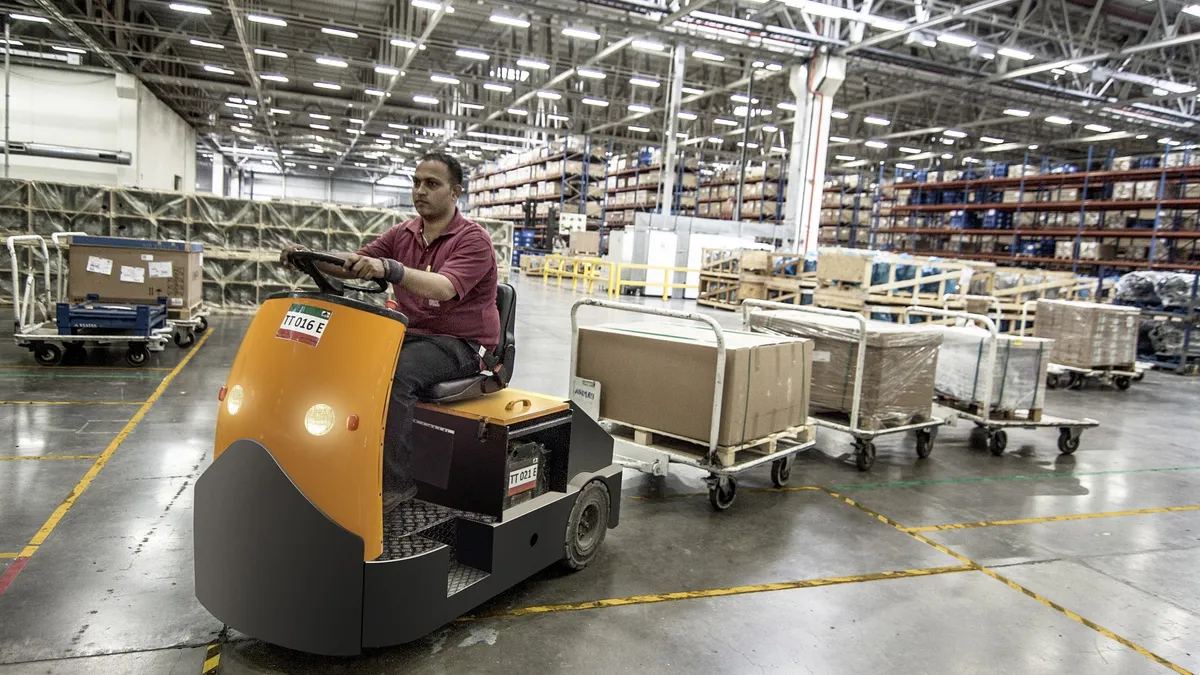Dive Brief:
- On-demand staffing platform Wonolo said employers looking to hire workers for the holiday season can expect to pay workers an average of $15.19 per hour, an 8% increase above the average annual hourly pay of $14.44. In a new report analyzing internal gig data on Wonolo' platform, the results showed that employers are expecting a robust holiday season this year and that the tight labor market with record-low unemployment is driving up wages. The data showed a seasonal pay increase per job of 9%, or $99.44, up from the current annual average of $91.59.
- Wonolo said that employers using its talent-sourcing services started setting wages and hiring in August and that some industries, like food production, manufacturing, general labor, fulfillment/warehousing and event staffing, will increase hourly pay throughout the season.
- Merchandising jobs pay the highest, at $113.20 per job, with jobs in administrative work and customer service following behind at $111.37 and $104.03, respectively. Job seekers gave the highest rankings to employers offering jobs in customer service, the administrative category, washing/cleaning and merchandising.
Dive Insight:
The average American adult spends around $967 during the winter holidays, according to an MSN Money finding Wonolo cited in its report. With so many sales to be made, orders to be filled and shelves to be stocked, employers may need to bulk up their workforces.
Randstad US announced earlier this month that it will fill more than 17,000 seasonal jobs nationwide for the holiday. The kinds of jobs needing the most talent fell into the same categories as those in Wonolo's report, namely customer service, warehouse support and the industrial sector. Randstad US also anticipates a robust holiday season, and the jobs it plans to fill will pay more, too, between $11 and $18 an hour.
Wonolo's conclusion that holiday hiring begins in August is one that has been reached by several others. Last year, for example, Kohl's announced in June that it would begin recruiting and hiring seasonal workers as early as August. Companies want to get ahead of the season's rush by reaching out to applicants early. But getting an early jump on hiring is not employers' only concern; seasonal workers also need training, since many end up being year-round or permanent workers. Randstad Sourceright's CEO Rebecca Henderson previously told HR Dive that companies will need to be proactive about training workers, as well as attracting them. "Employers want to attract the top talent before their competitors do, and seasonal workers offer employers the ability to test out new employees before hiring them as year-round, contingent or permanent hires," she said.












